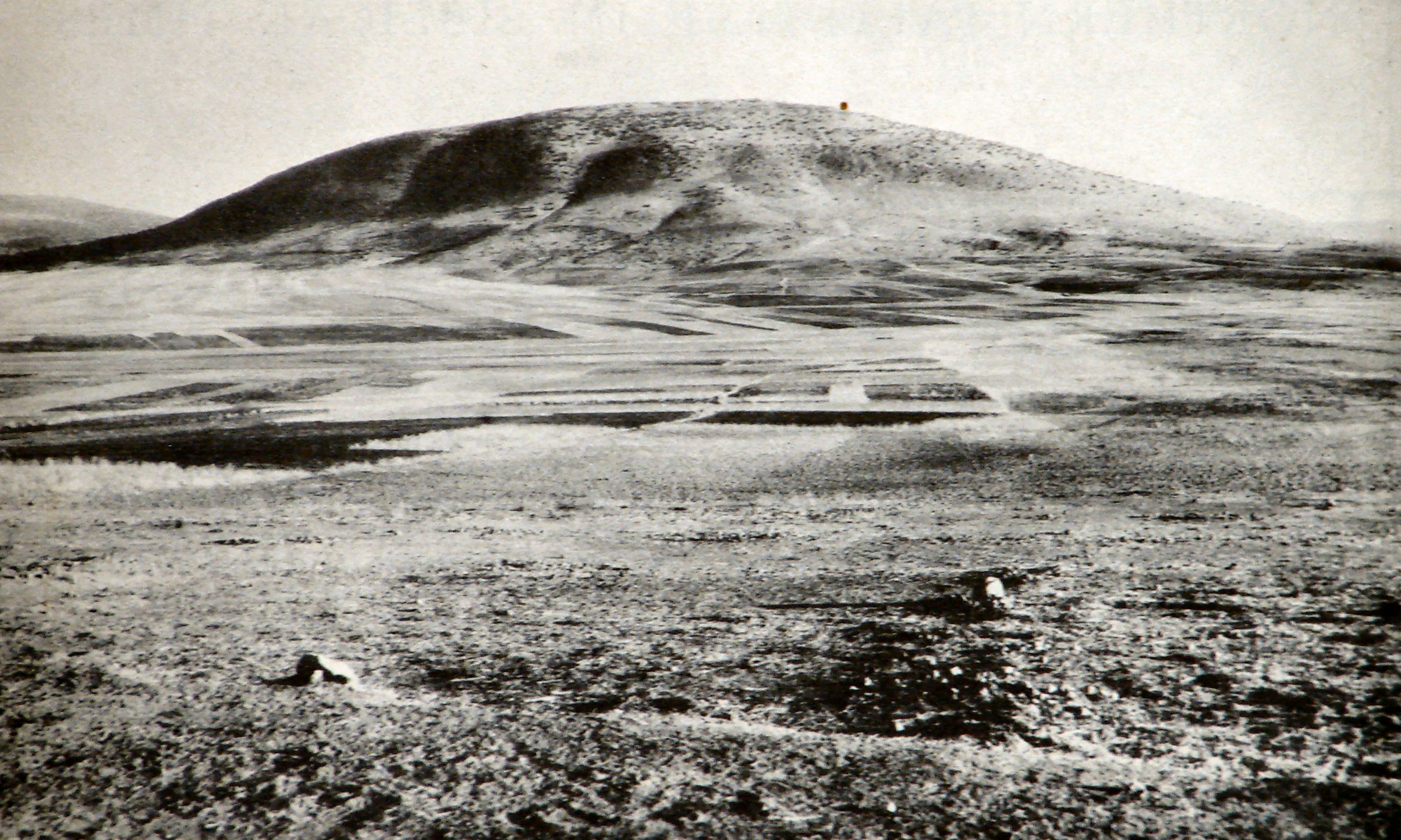
2nd Sunday of Lent
A Homily - Cycle C - 2006-2007
First Reading - Genesis 15:5-12, 17-18
Responsorial Psalm - Psalm 27:1, 7-8, 8-9, 13-14
Second Reading - Philippians 3:17-4:1 or 3:20-4:1
Gospel - Luke 9:28b-36
Luke writes to explain that
Christ came to save everyone.

Jesus took Peter, John, and James and went up the mountain to pray. While he was praying his face changed in appearance and his clothing became dazzling white. And behold, two men were conversing with him, Moses and Elijah, who appeared in glory and spoke of his exodus that he was going to accomplish in Jerusalem. Peter and his companions had been overcome by sleep, but becoming fully awake, they saw his glory and the two men standing with him. As they were about to part from him, Peter said to Jesus, "Master, it is good that we are here; let us make three tents, one for you, one for Moses, and one for Elijah." But he did not know what he was saying. While he was still speaking, a cloud came and cast a shadow over them, and they became frightened when they entered the cloud. Then from the cloud came a voice that said, "This is my chosen Son; listen to him," After the voice had spoken, Jesus was found alone. They fell silent and did not at that time tell anyone what they had seen.
"Then from the cloud came a voice that said, 'This is my chosen son, listen to him'" (Lk.9)

The event of Jesus' transfiguration on Mt. Tabor was, indeed, "good" for Peter, James and John. "Good" because it gave them a manifestation of Jesus' transcendent, divine nature. These three disciples and their companions were well-acquainted with Jesus' humanity. They had walked with him, talked with him for three years. They had learned from his teachings and observed his compassionate, caring nature as he cured the sick, raised the dead and forgave sinners. They still did not have a full understanding of his transcendent, divine nature. On the once storm-tossed sea they asked: "Who is this, that even the winds and the sea obey him?" The wondering crowd asked: "Is this not the son of Joseph the carpenter?" The transcendent nature of Jesus was affirmed on Mt. Tabor when the voice from the cloud said: "This is my son, my chosen one; listen to him" (Lk. 9).
You and I have not had the privilege of seeing the transcendent glory of Jesus Christ. Yet we can still say; "Lord, it is good for us to be here"; here in this hallowed space. Centuries before the birth of Christ, Yahweh (God) established a covenant relationship with the Israelites; "I shall be their God, and they shall be my people" (Deut.). In establishing the covenant, Yahweh also commanded: "You will keep my day properly, for it is a sign between myself and you that it is I, Yahweh, who sanctifies you . . you will regard it as holy".
To this day, Seventh Day Adventist Christians observe Saturday as the Lord's Sabbath, their 'Holy Day'. In the 5th century A.D., Pope Innocent I wrote: "We celebrate Sunday because of the venerable resurrection of Our Lord, Jesus Christ; and we do so not only at Easter, but also at each turning of the week". The observance of Sunday as 'The Lord's Day' eventually became, as Pope John Paul II noted: "A characteristic distinguishing Christians from the world around them"
As we reflect on Sunday as the Lord's Day, our Christian Holy Day, we might ask the question: "why is it good for us to participate in the Liturgy (the public worship of God) of the Mass every Sunday?" Do we come here mainly because the Church precept says that in order to be a "member in good standing" we have to show-up once a week? If that is all that our liturgy conveys, then it is not surprising that there are so many "C & E" Catholics - baptized Christians who appear in Church only on Christmas and Easter, or at a friend's wedding or funeral. We who are regular attendees at Mass can so "No" to the negative, rhetorical questions asked. Rather, we come to worship the Lord and to renew and solidify God's covenant-relationship with us as His "People," "The People of God".
Sunday is a "We" day; and it is good that we come together in this sacred space to give honor and praise to our transcendent Lord and Savior.
A contemporary stumbling block for many Christians today is the incursion of secular pursuits and commercial enterprises on Sunday. Bishop Joseph Fiorenza, in a pastoral letter, noted this modern phenomenon. While acknowledging the necessity whereby many Christians (especially those in hospitals, fire and police civic services) must work on Sundays, Bishop Fiorenza said, nonetheless: "When given a choice, however, Christians should not work or shop on Sundays . . . this will go against cultural (and economic) pressures, but it will witness to our belief in the Lordship of Jesus and the sacred quality of Sunday . . "
The late Cardinal, Joseph Bernardine once wrote "God does not need liturgy, people do! . . . we gather, listen, give praise and thinks, share communion. Otherwise, we forget who we are - and whose we are!" As Christians we gather on the first day of the week, and by our communal observances we give visible expression that we are "the People of God", and God is 'whose we are'!
If you find this
material valuable, consider a tax deductible gift to support this site.
The DaCapo Foundation • 2402 Tricia Ct. • Vienna VA 22181